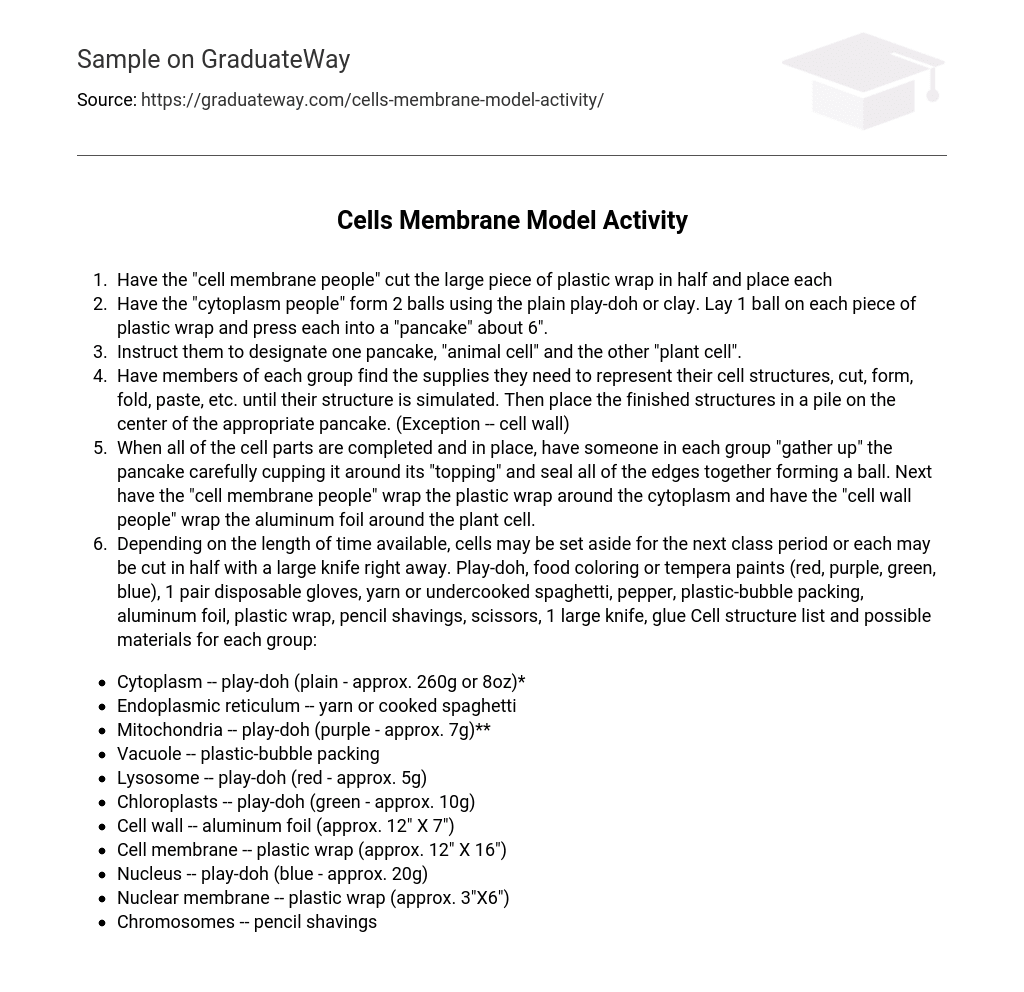- Have the “cell membrane people” cut the large piece of plastic wrap in half and place each
- Have the “cytoplasm people” form 2 balls using the plain play-doh or clay. Lay 1 ball on each piece of plastic wrap and press each into a “pancake” about 6″.
- Instruct them to designate one pancake, “animal cell” and the other “plant cell”.
- Have members of each group find the supplies they need to represent their cell structures, cut, form, fold, paste, etc. until their structure is simulated. Then place the finished structures in a pile on the center of the appropriate pancake. (Exception — cell wall)
- When all of the cell parts are completed and in place, have someone in each group “gather up” the pancake carefully cupping it around its “topping” and seal all of the edges together forming a ball. Next have the “cell membrane people” wrap the plastic wrap around the cytoplasm and have the “cell wall people” wrap the aluminum foil around the plant cell.
- Depending on the length of time available, cells may be set aside for the next class period or each may be cut in half with a large knife right away. Play-doh, food coloring or tempera paints (red, purple, green, blue), 1 pair disposable gloves, yarn or undercooked spaghetti, pepper, plastic-bubble packing, aluminum foil, plastic wrap, pencil shavings, scissors, 1 large knife, glue Cell structure list and possible materials for each group:
- Cytoplasm — play-doh (plain – approx. 260g or 8oz)*
- Endoplasmic reticulum — yarn or cooked spaghetti
- Mitochondria — play-doh (purple – approx. 7g)**
- Vacuole — plastic-bubble packing
- Lysosome — play-doh (red – approx. 5g)
- Chloroplasts — play-doh (green – approx. 10g)
- Cell wall — aluminum foil (approx. 12″ X 7″)
- Cell membrane — plastic wrap (approx. 12″ X 16″)
- Nucleus — play-doh (blue – approx. 20g)
- Nuclear membrane — plastic wrap (approx. 3″X6″)
- Chromosomes — pencil shavings





